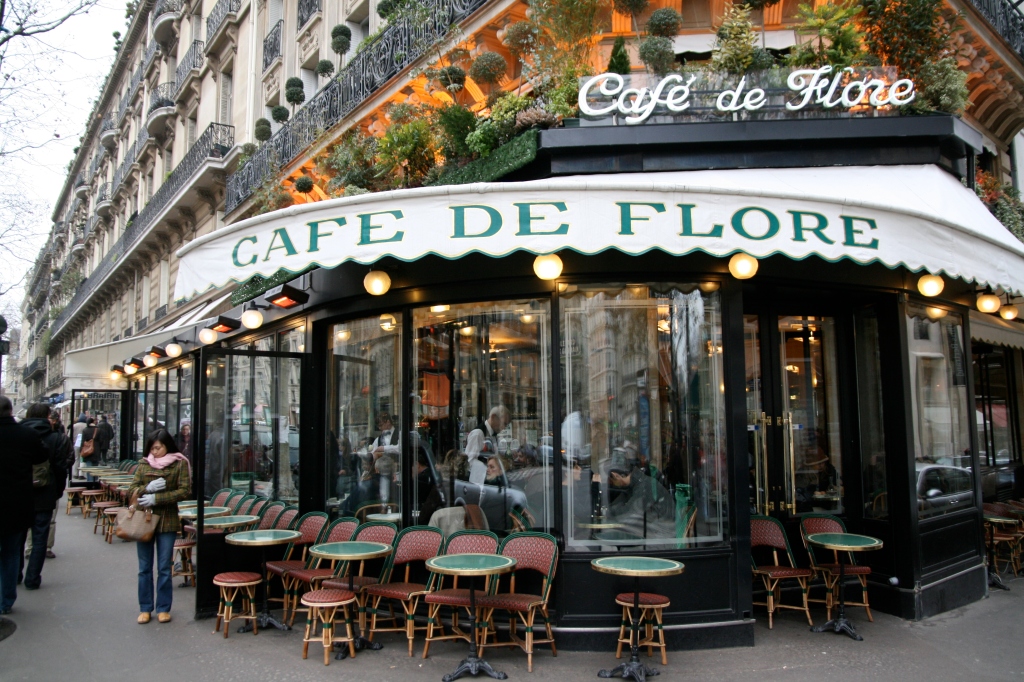
English coffeehouses and French salons and cafés were not simply areas to consume a caffeinated beverage or two. They were key features of society from the mid-17th century. They were forums for discussion and lively debate, engaging numerous social classes and contributing to the spread of the culture and ideals of the Enlightenment. People from multiple classes and backgrounds could gather and talk, making them an important component of the ‘public sphere’. French cafés hosted Enlightenment thinkers, and English coffeehouses accommodated people from all walks of life, whilst French salons provided a more structured and controlled arena for intellectual discussion. The three thus deserve serious historiographical attention; this article offering an introduction.
Originally drunk exclusively for its supposed health benefits, coffee began to be seen as more than just medicinal. The first English coffeehouse was set up in Oxford in 1650. Oxford was a hub for scholarship and intellectual discussion, and these first Oxford coffeehouses became known as ‘penny universities’. For a penny, patrons had access not only to drinks but to newspapers and stimulating conversation. Since this admission fee was the only entrance requirement, coffee houses were accessible to people of various ages and from all social levels. Moreover, without the consumption of alcohol, coffeehouses could host more serious conversations and debate than the more raucous taverns and alehouses, which the upper classes had come to regard with scorn.
The broad appeal of French cafés is also evident. French Philosophes or Enlightenment thinkers such as Diderot, Rousseau, and Voltaire (who apparently drank over fifty cups of coffee a day), frequented cafés in which their works were also disseminated amongst other customers. A variety of ideas were being discussed, then, and the Café Procope became infamous as such a gathering place.
English coffeehouses quickly spread to the capital and throughout the country. Samuel Pepys wrote about the London coffee houses in his diary and frequented his favourites often. In this way, coffee houses also became a part of the structure of people’s daily lives. Impressively, the crises of the 1670s – the 1665 plague outbreak and the Great Fire of London in 1666 – did not dampen coffeehouses’ attraction for long.
They were arenas for news consumption, where people could read and discuss newspapers. The power of such activities is suggested through King James II’s banning of all newspapers except the official London Gazette in these establishments. The creation of new newspapers after James’ order expired highlights the continued appetite for fresh and alternative sources of information to fuel discussion.
Perhaps unsurprisingly, given his father’s fate, Charles II was concerned about the unregulated gatherings and discussions in English coffeehouses. As a result, spies were planted in coffee houses in London, and he even tried to ban them altogether. The imposition of this measure illustrates how coffee houses were significant as far more than just places to drink coffee, whilst its failure demonstrates their attraction and potency in the second half of the seventeenth century.
Over a century later, shortly before the Bastille was stormed, journalist Camille Desmoulins delivered an impassioned speech from outside a café in the Palais Royal area of central Paris, before leading a crowd of revolutionaries away. The potential revolutionary potency of the coffee house was thus realised, and French cafés were indeed deeply intertwined with real revolutionary fervour and activity. With over eight hundred around the beginning of the French Revolution, cafés functioned as hubs where information and ideas could spread.
Although women could be present in English coffeehouses as servers or even owners, these were principally male spaces in which men engaged and sparred with other men about political and intellectual ideas. This links to the notion of ‘separate spheres’ for men and women, which was to become more explicit and endemic in English society. Indeed, some women were critical of coffeehouses, which kept men away from home to debate and drink coffee, which was said by some to make them infertile.
French salons provide a clear contrast to this. Women were far more actively involved in salons as hostesses or salonnières. In this capacity, women exercised a significant amount of power, choosing who would attend the salons and what would be discussed there. As such, salons were home to more controlled debate than the English coffeehouses, which lacked any comparable structure. They were distinct from French cafés, too, which were less exclusive and more distinctly male. Jean-Jacques Rousseau, who was often at cafés, was a strong critic of salons and salonnières as he resented the idea of women controlling or restricting men in such a way.
All three establishments were important cultural, political and intellectual hubs. In their own ways, they attracted a variety of attendees and fostered a safe space for healthy and lively debate. In France, the power of such ideas was actualised in the French Revolution, in which cafés continued to play important roles.
Emily Cull














